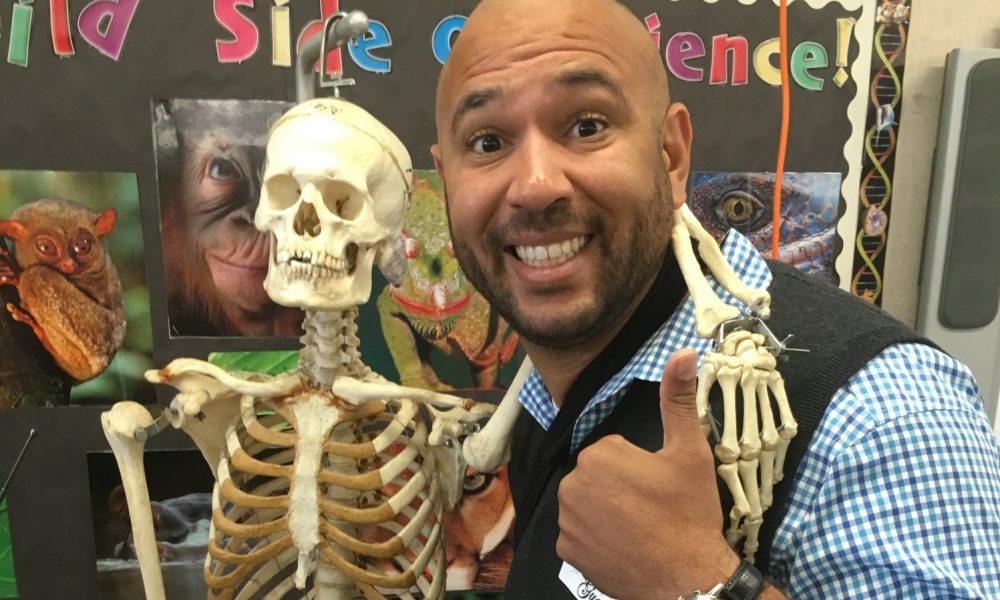

Today we’d like to introduce you to Robert Graves.
Robert, let’s start with your story. We’d love to hear how you got started and how the journey has been so far.
So in essence, there are two types of leaders in the service. Those who are the Gung Ho I-Live-By-the-Strict-Code-of-the-Service… they got perfect scores on their physical fitness test, they won meritorious boards because of all the knowledge they could retain and all the trouble they seemed to stay out of (or never got caught doing), and then there’s the Troop Handlers. The troop handler made sure their people were taken care of… emotionally, physically, mentally… and when discipline was administered, there was a reason and we were there with you, so you knew that your actions affect all of the team, and you’re not just being punished to be punished. Troop handlers benefits were/are more long-term than the stoic warrior mentality… because troop handlers know that a happy Marine will work f****** hard for you when you need it the most.
I was a troop handler.
For me, that meant passing on knowledge to everyone, and keeping them in the know. A well-informed Marine, I found, was more competent, because they felt like they were included on the process of decision making, and sometimes were. So now to progress on the timeline of “the trigger.” To make a really long story short, I was involved in a pretty nasty fight in where I was being charged with maiming. I was offered NJP, but opted for a court-martial because I was SSgt. Select and had just put in my Warrant Officer package. I was found guilty of maiming in the court-martial that I had opted for… and that was the beginning of the newest chapter.
I had only been busted down twice, got promoted once again before getting out, and left the service with an honorable discharge… but those 2 years +/- some months after the court-martial, I never once dropped my pack. Till the day I got out, people would introduce me as Sgt. Graves, and I am ultimately honored that I had that much of an impact on the Marines I served with, to be given that type of respect on the backend.
When I got out, I did the thing you do when you get out. PARTY. I partied for 3 months straight until my wife (who was back in Okinawa teaching on base) initiated talk about divorce… and then THAT… was the beginning of the newest chapter. I went straight into survival mode. I searched for a job 6-8 hours a day, wrote, and re-wrote my resume; wrote and re-wrote cover letters, interviewed with at least 2 companies a week (which sounds like a little, believe me… over 6 months, that is murder), had to find a place to stay—the whole shebang. During that time, in true “troop handler” fashion, I wrote an email called “The last Hip-Pocket” which at the time was ALL of the lessons I’d learned as a civilian up until that point of where I was in my transition.
I ended up getting a job at a relevant military contractor doing the same thing I’d told myself I would never do again… electronics. But it paid well, and I couldn’t wait any longer for this company that had given me 6 literal interviews and was telling me to just hold off b/c “we’re just getting pass some of the HR red tape.” I ended up spending six years with this company, and throughout all of that time, I was the “goto guru” of anything vet related… not because I’m a know it all… but mainly because I was resourceful and I didn’t mind waiting on the phone with the VA for 2 hours to ask a question.
Because of that, I actually was helping people improve their lives, and it wasn’t until one day I heard that this retired Senior Chief Petty Officer (who was working as a security guard) quit and went back to school. What the person didn’t know as they told me that was, Senior Chief Petty Officer and I had just had a conversation explaining that he could still use his benefits… and how. Vets were buying houses, and vets were getting service connected all from information I had simply shared with them—that I thought was well known in that generation (90’s) of vets. I would often joke with my wife that I should write a book, and then I was scheduled for shoulder surgery in October of 2015.
That whole recovery period away from work, I wrote diligently for 2 months. I wanted no service member to have to walk out of those gates for the last time into a literal unknown environment. It was my focus to educate as many people possible on the hard work it takes to be a veteran.
When “How to Grow a Beard: A Military Transition Guide back into Civilian Life” launched, I was getting hit up by people immediately telling me that if they had this book 3 years ago, it would’ve changed their lives. People were sharing the same shitty story, sometimes worse—and it was then that I knew I had to tell MORE stories. I had to figure out how to get more vets to share their stories, because these were the stories that held onto for too long, were leading my family of heroes to take their own lives due to the created mindset that “there is no place for us out here.”
So I created #YearOfTheVet!
#YearOfTheVet is a project created by me with the sole intention to introduce and share the stories of veterans around the globe who can add value to lives of the veterans who are walking the same transitional path that they once walked. The mission of #YearOfTheVet is to introduce and showcase veterans from all corners of the vocational world, as well as those with extraordinary hobbies… and even some who just simply have fantastic and motivating stories. From it, we share what is possible to those out there who 1) don’t understand the world of veterans, 2) don’t know the potential of the value of being a vet, and 3) may be struggling in the process of transitioning as a vet. It’s my intention to help many people in their process of transition, and for the generations behind me to have knowledge readily available from the lessons already learned.
With all the work I was doing for veterans… seeing so many of my brothers and sisters with my same story fall and fail on the outside of the service, I felt that I should attempt to move back into what my passion really was… and that was working with young men and women in a team setting, and helping them grow into the responsible individuals that *they* had in their minds to be. So I finished my Psychology degree, certified in Hypnotherapy (during a really dark period of my own PTSD and depression), and learned about Sport Psychology through that program. From there, I was in love… there was no turning back!
Overall, has it been relatively smooth? If not, what were some of the struggles along the way?
If you’re living life right, the road should have some bumps in it, and it’s going to be primarily uphill. It’s like growing… you grow physically to a certain point in your life, but that doesn’t mean you are EFFICIENT in life… so now you have to grow mentally, professionally, emotionally, spiritually… and those are ALL uphill battles.
I’ll share my biggest battle outside of the Marine Corps dealing with this road of discovery; and it’s one that I share in order to help others realize that we usually limit our abilities to one moment in life. One phrase, one look, one statement, one negative reaction to something we held onto so dearly… one moment can destroy the road you travel. Mine? Mine was an old manager of mine who by the time I realized this, I hadn’t seen him in 6 years.
You see, in the life of a veteran, other people will size you up, and see you as a threat. You’re a much quicker learner than they had been, you’re wiling to work long hours to please your new boss, you don’t complain about the same things they do, you’re self-motivated and a hard worker, and a lot of people you come across are going to be simply intimidated by you even breathing the same air they do. And it was that guy, the fearful, who challenged me by undermining who I was and how I was raised for the last ten years before accepting this job.
You see, I had picked up on that project I was working on relatively quickly. I learned immediately that procedures and policies had to be followed strictly because we not only had to meet customer requirements, but we also had an internal Quality Control that held gold standards for the product we were building. So when a gentleman twice my age was interfering with forward progress because of an Alpha male standoff, I simply told him to “leave my project and get the fuck out of my face. Your integrity is shit and I don’t need you around.” This was in lieu of some loud finger snapping and maybe a knife-hand near the face.
The Quality Control inspector broke up what he thought was going to be a fight, and what I’d known as me simply giving a direct order to a lazy excuse-maker and nothing else. Lo and behold, I received a call from my supervisor, and I was asked to meet him and another factory manager in a conference room later that day. After hearing my version of what happened, and already having heard the other party’s version, he simply says to me, “Graves, you’re not in the Marine Corps anymore. You can’t talk to people like that. You need to put a collar on that devil dog inside of you and shorten the leash.”
Being that I was being told that by my Marine Corps veteran boss—I heard him loud and clear. Ever since that day, I had never been the same.
What had essentially confused me was that I believed I was hired because I knew how to get things done in a timely fashion—with no reason to be micromanaged, or told to do things twice. I figured that at this company, I would be able to do my job, with little-to-no internal resistance. The only people I had to worry about, ever, were those on the receiving side of the work—never those who were working with me. So getting the job done my way, the way I believed I was hired for, just wasn’t going to work anymore.
I had to change my approach.
It is imperative. Civilians don’t fully understand the veteran. We can get down to their level, but we can never expect them to work up to ours. In order to survive at this job I had to become a much more timid and a much more reserved individual, learning when to speak, and whom to speak with.
Demanding things, barking orders, or even lowering an octave to get your point across is threatening to a civilian in the workplace, and you will be seen as a hostile threat and that could very easily get you sent to HR, or even worse sent home—for good.
When I was told to put a leash on and stop being a Marine, it affected me. There was a fire that raged, and it had to be replaced by a flameless candle. It affected my goals in the company, it affected my work ethic, and my physical health. That had subconsciously made me feel that it was bad to be that person that I held up to the highest standard, and I felt that if that version of me were to show face again, I’d be reprimanded—again.
The worst part is, I took that moment in subconsciously and it affected me as I started my own business. I would hold back from who I am and where I came from, and the problem with that is… if you are not your genuine self, people will read that–and it is a turnoff. You can’t win like that. So breaking that barrier for me has been a challenge, and one that I’m glad I went through, so I can help others beat it faster than the 6 years it took me.
Please tell us about LIVE: Mental Peak Performance Consulting.
LIVE is a Mental Peak Performance consulting company based in Southern California. My focus is on Athletic Peak Performance training, and Military Transition Assistance order to help vets, athletes, performers and professionals perform on the world stage, whether it be on the field, the boardroom, or in front of the camera
I specialize in subconscious work, and diminishing mental limitations in order for forward movement in one’s profession, by re-establishing states of confidence, reducing anxiety, controlling limiting and negative behaviors, and whatever else an individual needs to break through to grab success by the horns!
The pride in my company, comes from my personal background of overcoming adversity, and wanting others to experience the positive side of pain. 10 years in the Marine Corps… you learn to fight through and fight on.
If you had to go back in time and start over, would you have done anything differently?
I would’ve finished my degree while in the service. I would’ve traveled more. I would’ve spent less. I would’ve talked less, and listen more. But all in all, I believe that ultimately, things run the course they’re supposed to. If anything would’ve been different… I WOULD BE DIFFERENT. And If I’m different… the veterans, athletes, and the everyday person that I have been able to give my all to… could still be in the positions I’d met them in, and not flourishing in their own lives.
Pricing:
- “How to Grow a Beard: A Military Transition Guide back into Civilian Life” found on Amazon for $17.75
- Peak Performance sessions: $500 session/ 5 session minimum.
Contact Info:
- Website: www.coachgraves.com
- Email: [email protected]
- Instagram: LIVECoachGraves
- Facebook: https://www.facebook.com/YearOfTheVet
- Other: www.yearofthevet.com

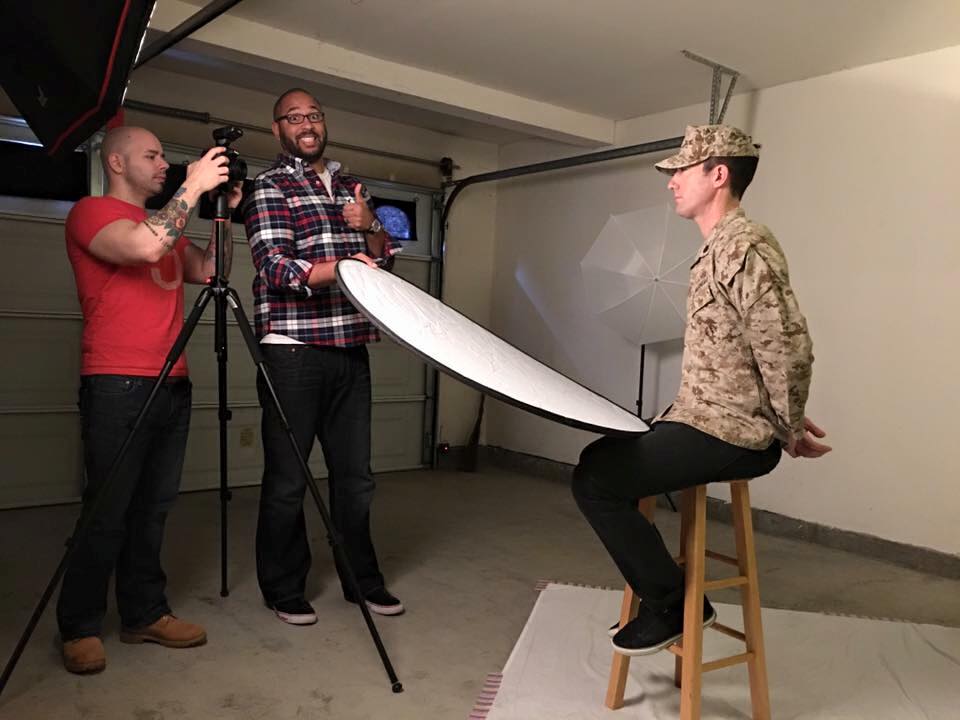
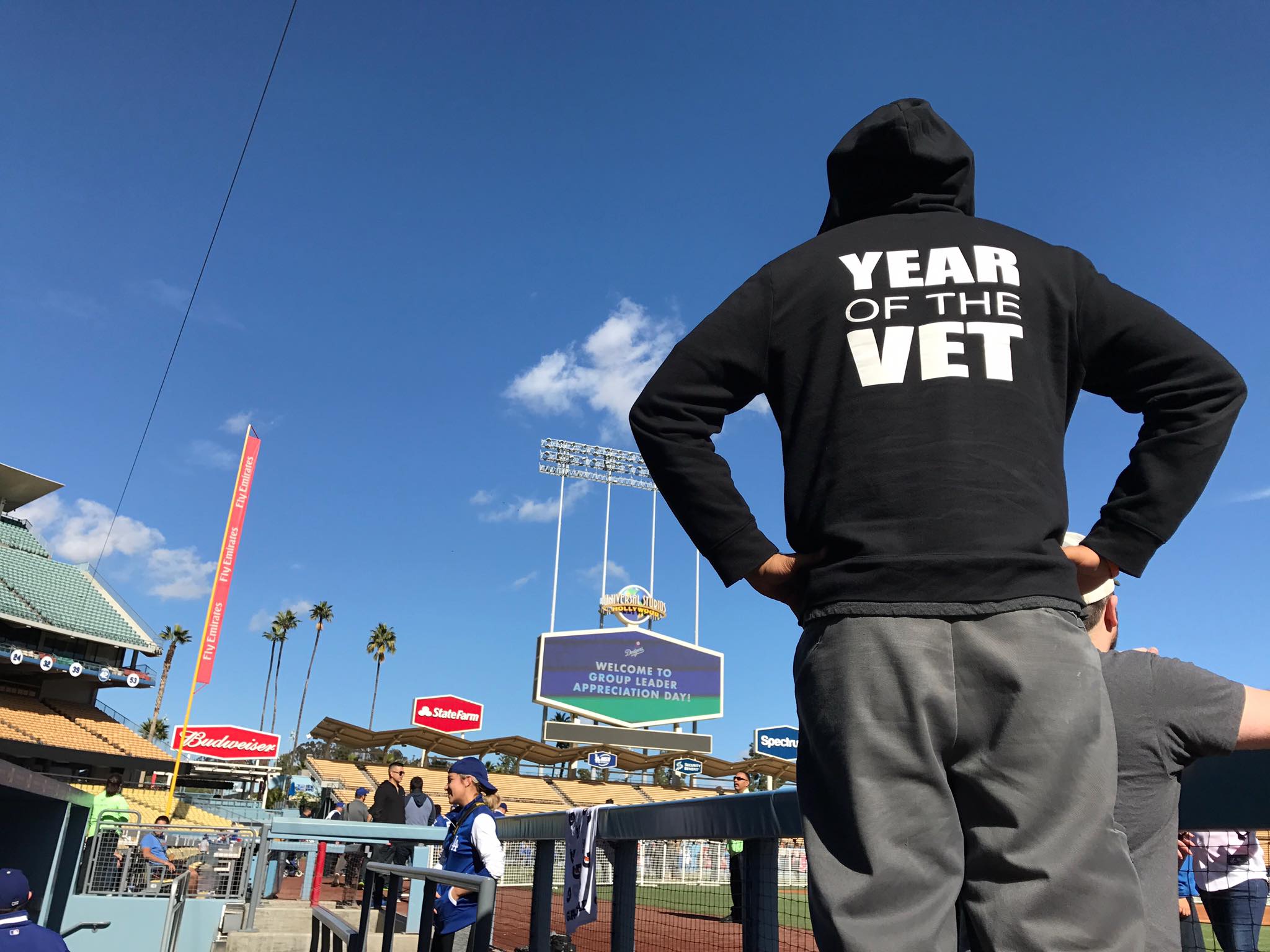


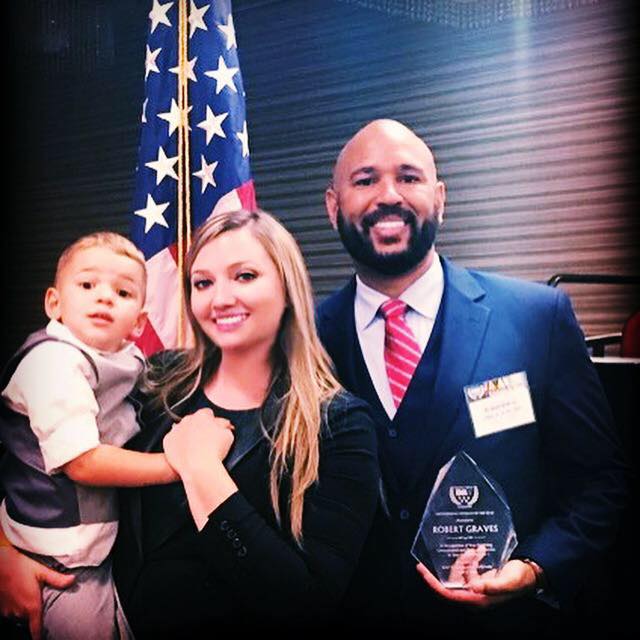
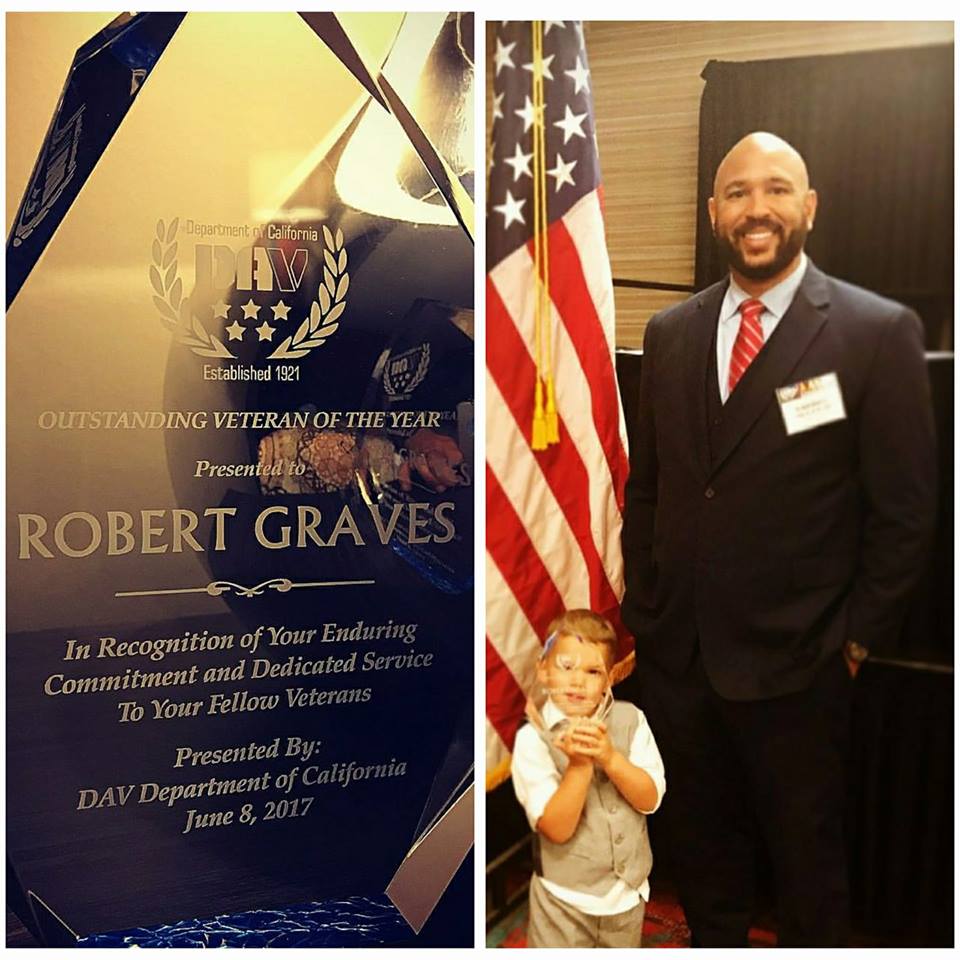
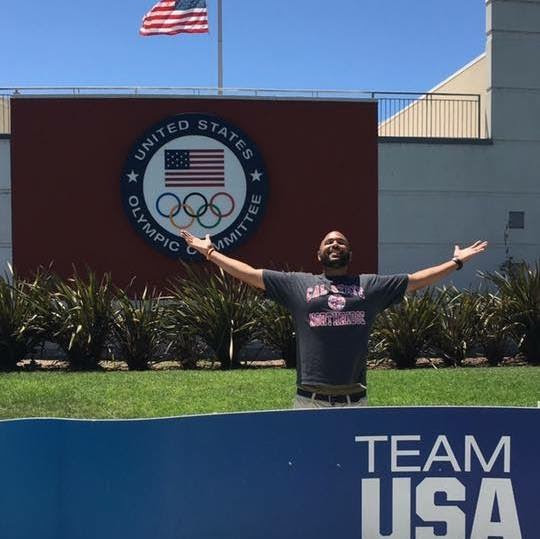
Image Credit:
Robert Graves
Getting in touch: VoyageLA is built on recommendations from the community; it’s how we uncover hidden gems, so if you know someone who deserves recognition please let us know here.



















